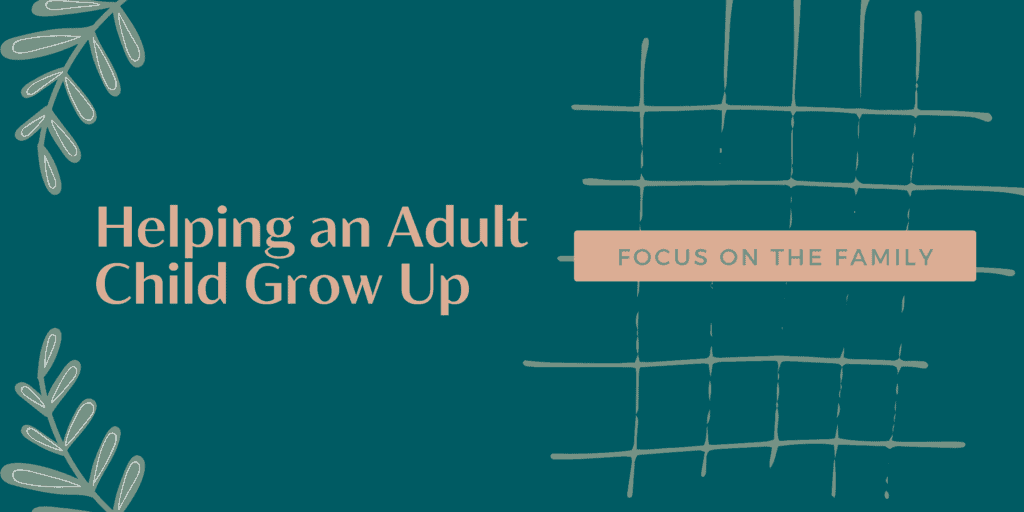
When Adult Children Reject the Faith
When adult children reject the faith, questions arise from the emotions and doubt. Learn how to commit to loving your kids in this situation.

One family made an intentional choice about how they would respond to their adult daughters wild and immature behavior.
Estimated reading time: 5 minutes
I remember clearly the night I sat in my darkened kitchen, peering out into the bleak, black night, wondering if I would ever see my 19-year-old daughter again.
From the time she was a junior in high school, Corinne had made a thousand poor choices. She’d received tickets for driving under the influence, wrecked several cars, lost jobs, forfeited thousands of dollars in legal costs and landed in jail twice. Now she’d simply disappeared. She hadn’t responded to my calls for more than 24 hours, and her car had been found abandoned in a parking lot.
That night was the longest of my life. I prayed and pleaded with God to bring my girl home. And in the back of my mind, I struggled to keep the tormenting thoughts at bay — those that warned I would be numbered among the countless moms and dads whose child never returns home, and they never find out why.
The next morning after I filed a missing person’s report, a young police officer arrived at our home to take a statement and get a description of Corinne.
He wrote down the information we provided and then said, “I see this all the time. Parents trying to raise their children to be responsible members of society, but they just go out and break the law and keep getting into trouble.”
That was Corinne.
“We’ll find your daughter,” he continued, “but you don’t have to allow her to live in your home and watch her destroy herself.”
Wham! At that moment, I realized my husband and I had a choice.
We didn’t have to let Corinne live with us while she ran headlong into wild and dangerous territory. She was no longer a young teen but a legal adult, and she was now responsible for her own actions.
I felt a sudden rush of relief. We could continue to encourage her to go in the right direction, but we didn’t have to financially support her decline. After the police officer left, my husband drafted a strict contract for her to sign or she was out of our house for good.
Some of the requirements we made in the contract:
If Corinne violated any point of the contract, she lost one semester of our financial assistance for college tuition. (She lost it three different times!) If Corinne did go out and drink, she could call my husband, and he would come and get her — no questions asked. We wanted to prevent her from driving drunk and endangering herself and others.
Later that day Corinne arrived home. Our relief quickly morphed into shock. She was upset and rudely belligerent toward us because we’d had the nerve to call the police to look for her!
All the emotional anguish we had endured through the night, paired with the police officer’s advice, made it crystal clear that our daughter would either abide by the rules in our contract, or she would have to find another place to live.
We fully expected her to pack up and move out. But she didn’t. She complained, but she signed the contract (which we kept handy and referred back to often) and began to follow our house rules for the first time in years.
Signing the contract, however, was the first of many baby steps Corinne took to start over. I liken it to destroying a structure only to rebuild it brick by painful brick. New job. New friends. New habits. New life.
A few days later, my husband drove her to our local homeless shelter and said, “This is your next stop if you mess up again.” That same day he also told Corinne to break her phone and her computer (so she would not have the contact numbers of her friends), and she did so willingly. Yes, it was costly, and it was mainly symbolic, but we knew there would be countless tempting moments to come for Corinne, and we wanted to put in place as many deterrents as possible to falling back in with the same people and same dangerous surroundings.
Months later, Corinne wanted to restart her faith walk with Christ by getting baptized. Of course, we were thrilled, but people’s reactions simultaneously stunned us. “Aren’t you glad it’s all over?” they said. While her testimony and baptism were wonderful, my husband and I both knew it was far from over. No, it would be years of her making good choices before Corinne was no longer drawn to patterns of her former behavior. And we were committed to being there for her.
She fought hard to keep from falling back into her old ways, and we were there to help her through the battle, grateful that God was faithful to our prayers for her. Corinne stayed committed to her turnaround because she realized we meant business, and she knew her so-called party friends would never have taken her in.
Looking back on that time, I realize that the simplest things were what helped me cope and get through it. I learned to cast all my cares on the Lord every single morning and every single night, clinging to the promise that He would sustain me (see Psalm 55:22). I had to trust that He wanted what was best for my daughter even more than I wanted it. So I intentionally saturated my heart and mind with God’s Word, which is alive, active, powerful and life-giving (Hebrews 4:12). And God transformed me, and my daughter.
These verses helped my family keep our heads above water during those years of never knowing if Corinne would make any wise choices or come to the Lord:
Isaiah 41:10
2 Timothy 1:7
Psalm 34:4
Matt. 6:27
Psalm 24:1
Michele Howe is a sought-after speaker and the author of books such as Empty Nest: What’s Next? and Going It Alone.